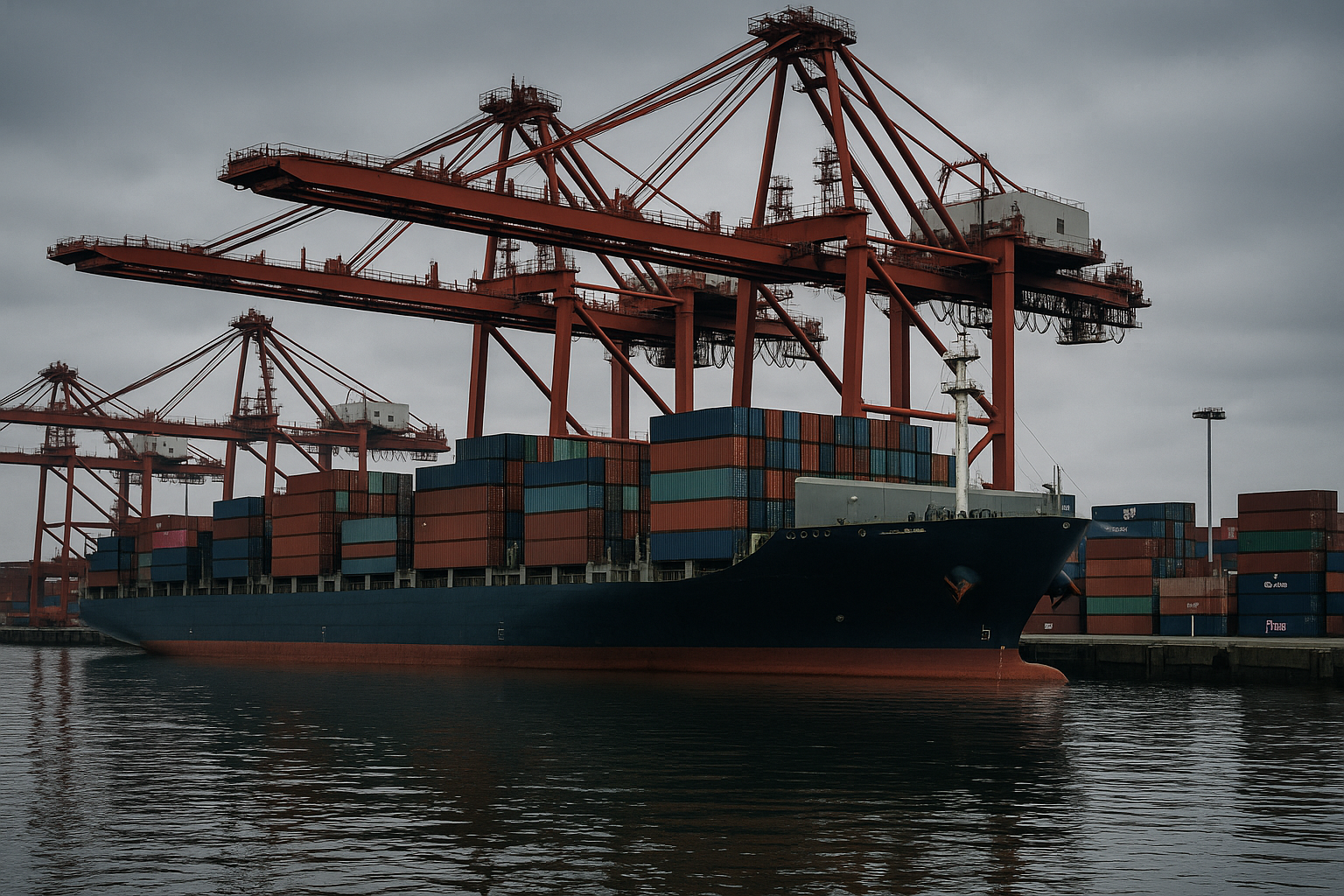China’s Export Growth Collapses to Six-Month Low in August – Exports Miss Forecast
By Tredu.com • 9/8/2025
Tredu

Export Growth Slumps to Six-Month Low
In August 2025, China’s export growth collapsed to a six-month low, with shipments rising just 4.4% year-on-year, significantly missing forecast expectations of around 5%. This marks a sharp deceleration from July’s robust 7.2% increase and signals a waning of momentum that policymakers had hoped would sustain external demand.
Imports Also Underperform
China's imports also underperformed, increasing only 1.3%, compared to economists’ projections of roughly 3% growth. This signals a broader weakness in domestic demand, driven by persistent property sector strain and subdued consumption, even as seasonal demand for raw materials keeps some volumes stable.
U.S. Tariffs Bite Hard, U.S. Exports Plunge, Southeast Asia Rallies
Exports to the U.S. suffered a dramatic 33.1% drop, underscoring the heavy toll of U.S. tariff policies on China’s trade flows. In contrast, shipments to Southeast Asia surged by 22.5%, reflecting a strategic pivot toward regional markets. However, analysts caution that no substitute market matches the magnitude of U.S. demand, which historically absorbed over $400 billion in Chinese exports.
Trade Surplus Holds but Ticks Up Slightly
China’s trade surplus rose modestly to $102.3 billion in August, up from $98.24 billion in July, yet still below June’s peak of $114.8 billion. While superficially encouraging, analysts warn this increase may simply reflect the export‐import divergence amid tariff‐driven shifts.
Trade Truce Fades, Policy Response Tenuous
The temporary benefit from the U.S.-China tariff truce, signed on August 11, appears to be fading. Chinese officials have so far avoided launching major fiscal stimulus, instead relying on limited tools like monetary easing and controlled domestic programs such as a tight “cash-for-clunkers” scheme. Observers note that without more robust policy action, sustaining the headline goal of roughly 5% annual GDP growth will be challenging amid external headwinds.
Broader Economic Strains Amplify Downside Risks
Alongside the export slowdown, other economic indicators suggest the wider economy is under stress. August marked the fifth consecutive month of manufacturing contraction, with the official PMI at 49.4, signaling continued frailty in industrial sentiment. These pressures are compounded by lingering property market distress, cooling consumer demand, and fiscal constraints at the local government level.
Conclusion
China’s export growth slowdown to a six-month low in August, falling well short of forecasts highlights the fragility of external demand and the limitations of regional diversification amid U.S. tariff pressures. With both exports and imports underperforming, and limited fiscal policy support forthcoming, China faces mounting challenges in stabilizing trade momentum. The core theme remains clear: China’s export growth collapse, driven by fading truce benefits and external pressure, underscores a critical test for economic resilience and policy agility.

How to Trade Like a Pro
Unlock the secrets of professional trading with our comprehensive guide. Discover proven strategies, risk management techniques, and market insights that will help you navigate the financial markets confidently and successfully.


